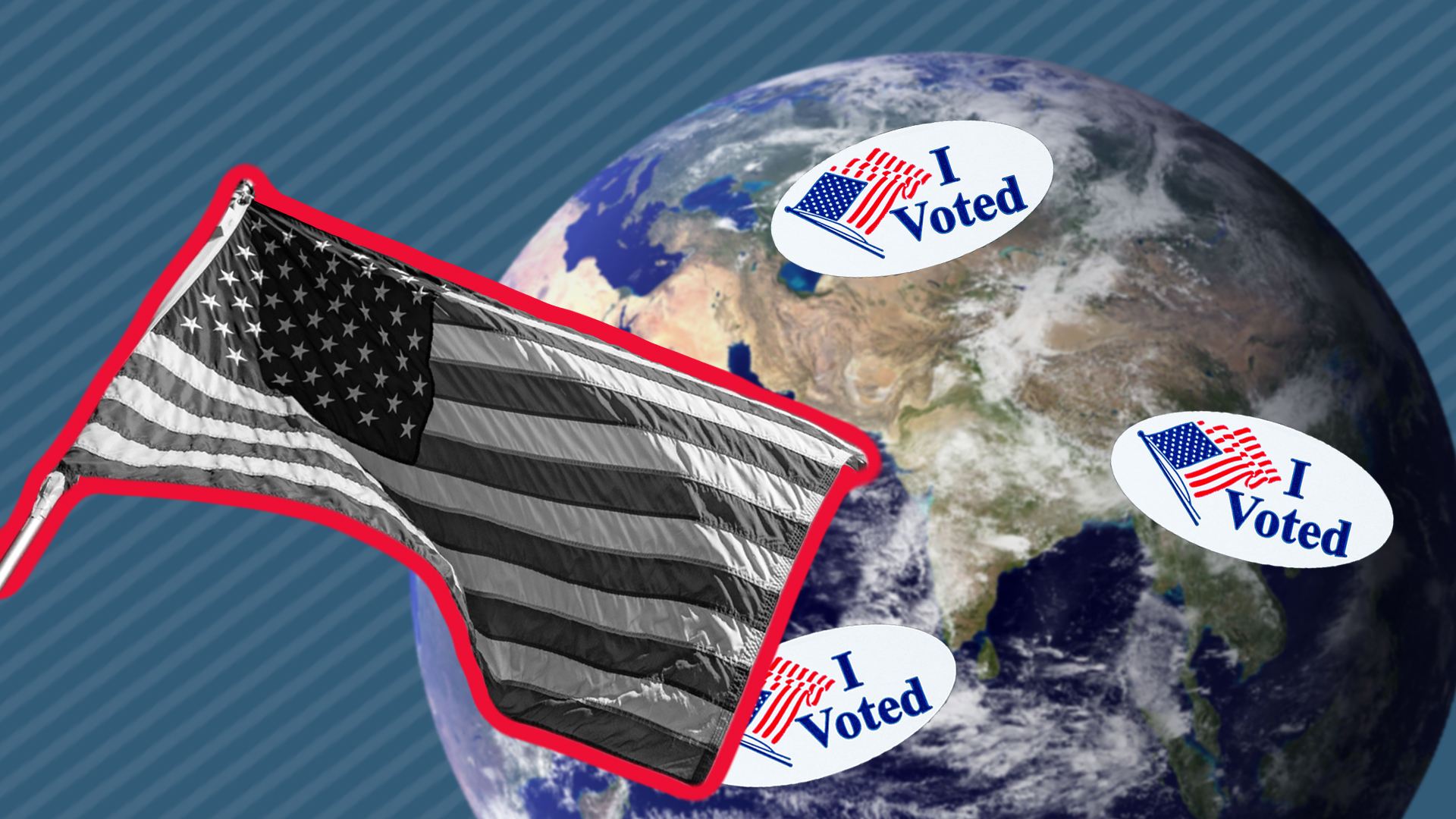
With only a few weeks to go in a contentious presidential race, amid a pandemic and a year of social upheaval, the course of millions of Americans’ lives is at stake as people cast their ballots this year. At Northwestern, a university with historically high voter turnout rates, many students do everything they can to ensure their votes are counted.
Yet a significant demographic of the student body won’t have a say in who will be the “Leader of the Free World” for the next four years. Northwestern’s international students, barred from voting due to the citizenship requirement, urge their American peers to keep the rest of the world in mind as they make their electoral decisions.
“This is not just your country depending on you, it’s literally the world,” said Weinberg sophomore Hamza Mahmood. A citizen of Pakistan, Mahmood said that people around the world still look to the United States as a model for democracy. With Trump at the helm these last four years, Mahmood feels that leaders in Pakistan have been able to justify increasingly autocratic behavior.
"They say 'look, if the U.S. is doing it, and the U.S. is this beacon of hope and democracy, then we can do it,'" Mahmood said about Pakistan's leaders.
Mahmood said the Trump administration’s denial of climate change is also extremely dangerous for Pakistan and other South Asian countries that are hit hardest by its effects, including heat waves and flooding. Mahmood believes that if the Democrats had won in 2016, his country would not be facing a lot of these problems.
Opportunities for international students in the U.S. are also at stake. Mahmood, an economics major who wants to work in finance, said that the United States is the best place for him to be after college.
“Working on Wall Street is the dream,” Mahmood said. He explained that five years ago, it was much easier for international students to obtain company sponsorship for an H1-B visa, which would allow them to remain in the U.S. to work. The Trump administration has created even more barriers to companies looking to sponsor international workers, and even if he could obtain a company sponsorship, Mahmood said, there is little guarantee he’ll be able to obtain the visa.
Northwestern University political science professor Laurel Harbridge-Yong emphasized the international consequences the U.S. presidential election will have.
“The U.S. is a major world power, and so what happens domestically in American politics has a bearing on interactions with countries around the world,” Harbridge-Yong said.
Regarding specifically the impact on international students, Harbridge-Yong addressed how foreign policy pertaining to visa acquisition and the ease with which students are able to enter the U.S. could more largely affect immigration to the U.S.
“International students come to the U.S. not only to provide diversity of perspectives within higher education institutions, but also in many respects I think people hope they also then stay in the U.S.,” Harbridge-Yong said.
If fewer international students come to the U.S for school and choose to live here, “that obviously could have trickle down effects to policy in terms of thinking about both what happens in the economy, but also then does the government try to change that and reverse things to get more people or do they continue to restrict it?” Harbridge-Yong said.
A citizen of Germany, Weinberg junior Maren Seidel expressed frustration with her American peers who, despite being eligible, still haven’t registered to vote.
“A friend of mine always says ‘wer nicht wählt ist gegen demokratie,’ which basically means ‘if you don’t vote, you’re against democracy,’” Seidel said. “I think this is true. Even if you think your vote isn’t going to change anything, the act of voting itself is important.”
While School of Communications sophomore Ahlaam Moledina also believes voting is important, she understands why some people might still be reluctant to vote.
A citizen of the United Kingdom with roots in the Middle East, Moledina said that she’s never fully trusted the Democrats, despite the widely held view among young people that they are the upholders of social justice, acceptance and liberalism.
“I think that the Democrats are a wolf in sheep’s clothing,” said Moledina, explaining that Democrats’ economic policies are often the complete antithesis of the neo-liberalism they say they represent. She cited Obama’s foreign policy in the Middle East as an example of this hypocrisy.
“His foreign policy was so disastrous and destructive,” Moledina said. “Everything he preached domestically about inclusivity and justice was not honored globally.”
Moledina said she especially understood why people with marginalized identities may not want to vote, citing Trump’s and Biden’s histories of explicit racism, sexism, and sexual assault.
“If you are a person who has experienced that kind of marginalization, and you don’t want to vote in favor of either of them, I think that’s very understandable,” said Moledina. “But I also think that we’re at a very critical point in global politics where if you can vote, you should.”